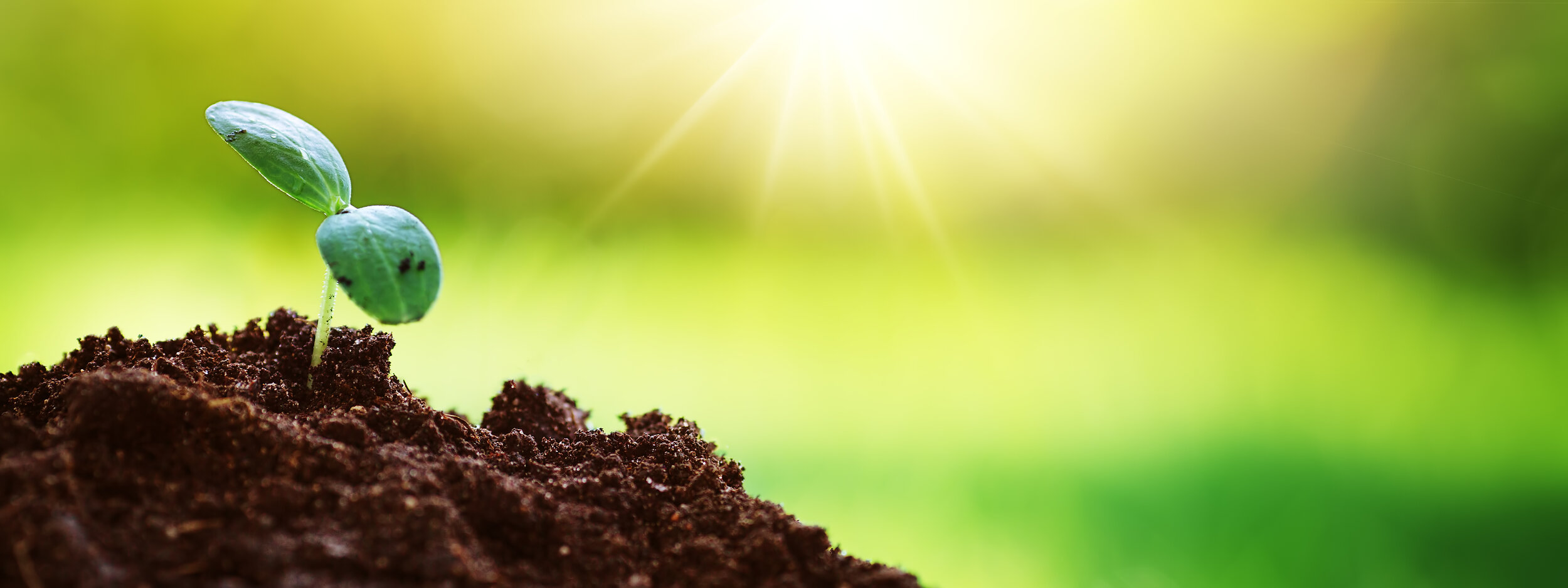GETTING BACK TO WHAT IS REAL
The relationship we have with plants is amazing. The complexity of the plant life that surrounds us contrasts with the simultaneous, utter simplicity of the interconnections. All life on the planet is dependent upon the sun. We gain nutrients and energy directly from the sun and indirectly through the foods we consume. Plants accumulate energy from the sun. We eat those plants, and the animals we eat, eat those plants. Everything breaks down and returns to the earth. The plants accumulate nutrients from both the soil and the sun, and the cycle continues.
We live in a world that is overwhelmingly fueled by reductionist ideas. In this way of thinking, there is no understanding of the whole, how all things are connected. Too many human beings are disconnected from the soil, disconnected from the natural world. Too many people feel superior to the natural world and attempt to conquer nature, instead of being in harmony and in tune with nature. The plants and the animals – all of them – form a community that existed long before humans appeared on the planet. In all likelihood, this non-human life will all be here long after humans disappear from the planet.
We owe much of reductionist science to a man named Dr. Justus Von Liebig. Back in the 1850s, he discovered isolated "vital amino acids" and called them vitamins. Von Liebig's major contribution to agriculture was the isolation of what is considered by most plant scientists to be the fundamental elements for plant growth. He called it the "law of the minimum." He asked the question, "what are the minimum chemical elements necessary to make plants grow?"
That discovery enabled him to come up with the whole concept of N, P & K – nitrogen (N), phosphorus (P), and potassium (K), to make things grow or appear to grow. This is the basis of the chemical processes utilized by Big Ag to produce food. Give plants only the absolute minimum of nitrogen, phosphorus, and potassium necessary to grow, ignoring the other macro and micronutrients that produce health and nutrition for both the plants and those who eat them. In this approach, there is little concern for building the soil that feeds the plants by adding organic matter.
The NPK chemical approach destroys natural micronutrients and living organisms that are part of the teeming life of healthy soil. Add hybridization and GMO's to the dead soil, and what comes out of this mix is plastic food, steroid food. That's what you see in the grocery store. The produce is tasteless. Food further processed from ingredients grown in this manner is worthless.
So many folks are concerned about how the outcomes of climate change and chemical agriculture will destroy the earth. I'm not worried about that at all. The planet has been here, and it's been strong for gazillions of years. Humanity has only existed for 15 minutes of cosmic time. The real problem is that, if we don't take care of the environment around us, climate change may eliminate human life. It is human beings who are going to have the problem, not Mother Earth.
When we appreciate the natural relationships between plants and the earth and the sun and the water, we will have a much greater respect for this great home of ours. We need to pay more attention to our connections and interactions with the environment.
Many stories have been told of how George Washington Carver talked to plants. Actually, the plants spoke to Carver. He would get up in the morning and take his walk in the fields and listen to the plants. The plants and flowers provided tremendous inspiration and counsel to Carver.
They would tell him what to do, what would work. He was spiritual. He opened himself. He allowed himself to commune with nature. Communing with nature is communing with God. Being with plants in a garden is a transformative, meditative form. Another realm is entered when you let yourself go and establish a connection with the plants and the soil.
The plants will tell you what they need when they need it. And all we have to do is pay attention, open our eyes, open all of our being and receive the information that's coming into consciousness. Plants also have a way of communicating with each other. This is why natural urban agriculture works.
Plants are very much alive and conscious. Several books have been written about the "secret life of plants," the intelligence of plants. You cut plants, they feel. You can see plants react when they're cut if one is sensitive and pays attention. Our emotional responses affect the plants that are around us. The plants also affect us. The aromas – all of the fragrances that we use in aromatherapy – come from plants. Look at the effect that they have on us in the concentrations they are used. If you take time to look at and study, you will see plants react to human connection.
Sensitivity to plants is very much aligned with our sensitivity to God. So often, when we pray, we tell God what we want and what we want God to do for us. If God is God, Creator of the heavens and earth, we need to stop, listen, and hear what God wants for us. That is what is real!!

